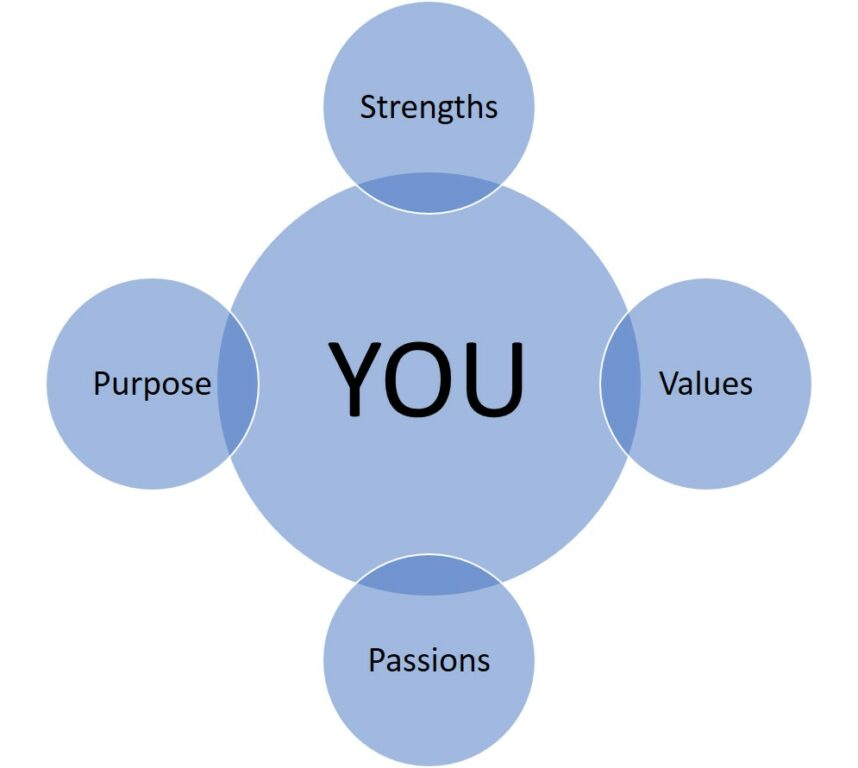This question is something we all need to ask ourselves regardless of where we are in our careers. But what is actually being asked? Do you have a clear understanding of the elements that creates brand “you”? Brand is more than a name, it encapsulates the qualities and values attached to you. It includes the vision you have of yourself and your career while others will have an expectation of what to expect from you given your brand. Your brand is not your company. Your brand doesn’t only get turned on when you walk through the door for work. Your brand needs to always been on – it needs to be authentic and consistent if it’s going to provide value to you and your career aspirations. Your brand is your reputation and it needs to be guarded carefully and built purposefully.
So, how do you build your personal brand? How are you going to set yourself apart from others within your organisation or within your industry? Career opportunities are highly competitive even within your current company. Your qualifications, your experience, your extra-curricular activities all contribute to your brand, but there’s so much more to be considered to set you apart from the rest. Before we move into the ‘how’ of building a personal brand, please note that we are assuming you already have an online profile on a reputable professional networking site such as LinkedIn, so when discussing building a brand, that brand in person needs to also be accurately reflected online. We encourage you to modify your online profile according to the learning you have regarding personal brand.
The Venn diagram below identifies the four key elements to your personal brand. These elements are the broad categories to focus on when building your brand.

For each of these elements the following strategies are useful in assisting you to build your brand.
Reflect – you will need to ask yourself some, at times, challenging questions and provide honest answers to gain an accurate appraisal of the brand element.
- From your reflection, create a short list of descriptive words to describe yourself. This is your starting point. Include the ‘gaps’ or areas that need attention or development.
- Allocate these descriptions into lists of positive or ‘challenging’ attributes. These challenging attributes can be weaknesses if not addressed.
- Look for connections between career attributes, personal attributes and contribution attributes. By this, contribution relates to the non-work contributions you make in life, with teams, groups, even family and friends. The fuller the picture, the more accurate the starting point.
Research – how do others perceive you, your contribution and skills, and the way you relate to others?
- Do you notice any repetition or themes with your list? Are there any surprises at this point? Have you asked people to be honest and genuine in their responses?
- What aspects of the feedback will you build on in your brand and which ones will you try to minimise?
Modify – once you’ve identified aspects of your brand which need attention you will need to develop appropriate strategies to modify them to include them in your brand.
- Develop a strategy to enable you to effectively modify your approach, interactions, language, skills, knowledge to highlight your strengths. We’d recommend focussing on those elements that can be easily modified just by being more conscious or purposeful about them.
- Don’t try to modify or adapt all the ideas at once. Work through logically and assess for yourself how important each element is for you and your brand.
Apply – the modified elements are applied to improve personal brand.
- Make it real. Authenticity is vital at every stage. Be practical in your application too, for example, through your online profile and through feedback from your colleagues and clients.
- Identify and be involved in activities, projects, conversations and groups which reflect the positives of you and your brand.
Repeat – use this process periodically to ensure that your brand accurately
The four elements of personal brand are discussed below. We’d recommend you apply the above strategies to each.
Strengths
It seems natural to identify and highlight strengths when building your personal brand, after all, this is your reputation which is being built and reflected. We would certainly recommend you focus on strengths, but don’t lose sight of the growth and learning potential that can arise from understanding your weaknesses. They are an excellent impetus to make changes in your life.
Strong self-awareness = strong brand.
One of the interesting aspects of examining your strengths and weaknesses relates to the perception of others. This photo of the woman rock climbing, for example, can be used to represent strengths such as courage, willpower, determination, agility, flexibility and skill. However, another person may perceive this image and view her as reckless, irresponsible, unable to measure risk, ego driven or even a little crazy! As you work through the element of strengths, you will need to be mindful of identifying descriptions that are meaningful, knowing that what you perceive as a strength may not be so to others. Your strength of being flexible and adaptable in an environment of change could be seen as a weakness of lack of consistency in a more regulated or structured work environment. Qualifying your strengths with quantitative and qualitative examples can be helpful.
Values
Do you know what’s important to you? If you do, it’s probably related to the values you hold – those core aspects of how you engage with the world (self, others, and the environment) that you pride yourself in. Those aspects of being a person who seeks to demonstrate what’s important to them, what they put value in. We talk a lot about a company’s values, usually, they’re referenced on websites or in their marketing material. The standards of conduct they expect from every single employee. Company brands reflect and build upon these values, and essentially, we need to do the same. There are values audit tools you can download from the internet if you want to go down that path. But you can simply ask yourself – what’s important to me, and why? We would recommend that you identify approximately 5-7 values and these need to be included as part of your profile. You need to build a reputation for living these values consistently. Ideally, you want people to say that you “walk the talk”. These are the essential elements of how you want to be known and how you choose to conduct yourself.
Passions
Passions can be easy to identify – ask any of your friends, even your colleagues and they’ll know exactly what you love! Be it a creative pursuit, community activity, sporting team or relationship – they know because you can’t help talking about it, you want to spend time with what you’re passionate about. If we’re fortunate, our career may include an element of a passion we might have. For example, you might be really passionate about everyone being treated fairly and in your work you’re the diversity officer, the advocate for the new team members, or part of the union. Similarly, in your personal life you volunteer for a community group or work on a helpline to support others who are less fortunate. Your passions often reflect your values and when they are aligned the synergy in your brand is easy to demonstrate and sustain.
One of the traps people can fall into is referring to their passions too often and at inappropriate times or through inappropriate forums. We’ve talked about having an online presence through a professional networking site. Most of us also use social media through Twitter, Facebook or Instagram – for example. It’s vital that you know the purpose of each, the audience of each and that your personal brand remain consistent. People will be “assessing” your brand online. This forum can be used to assist in building your brand or can be detrimental, so be wise in what you ‘put out there’. One of the interesting aspects of having an online presence is seeing what people are passionate about and often who or what they ‘follow’ can give you a good indication of what’s important to that person. Just as we do it to others – they will be doing it to us. Is your online presence aligned to your personal brand?
Purpose
The final element of your personal brand is to pull together your strengths, values and passions, (minimise your weaknesses) and fulfil your purpose. It’s actually a challenging question to ask yourself – “what is my purpose”? Your personal brand development enables you to live your purpose specifically in your career, but this can easily be translated into your life generally. This article has talked about the need to be authentic and a key reason for that authenticity is for you to live your purpose. This isn’t genuinely possible if you haven’t been honest with yourself in the process of building your brand. Your reputation is going to be evaluated, often sub-consciously by others based on the evidence you demonstrate around your purpose. The “why” you deal with others using integrity. The “why” you put time and energy into growing your team. The “why” you treat others with respect; provide solutions; follow your dreams; give back to the community; have a ‘can do’ attitude; provide excellent service, and so on. So many of these “why” questions are answered in subtle and overt ways through your personal brand.
We’d encourage you to take the time to go through the five stages and apply them to each of the four elements of personal brand “you” to create the reputation your desire and deserve.



